FRIEDRICH ENGELS
THE ORIGIN OF THE FAMILY,
PRIVATE PROPERTY
AND THE STATE
Introduction by Tristram Hunt
PENGUIN BOOKS
PENGUIN CLASSICS
Published by the Penguin Group
Penguin Books Ltd, 80 Strand, London WC2R 0RL, England
Penguin Group (USA) Inc., 375 Hudson Street, New York, New York 10014, USA
Penguin Group (Canada), 90 Eglinton Avenue East, Suite 700, Toronto, Ontario, Canada M4P 2Y3
(a division of Pearson Penguin Canada Inc.)
Penguin Ireland, 25 St Stephens Green, Dublin 2, Ireland
(a division of Penguin Books Ltd)
Penguin Group (Australia), 250 Camberwell Road, Camberwell, Victoria 3124, Australia
(a division of Pearson Australia Group Pty Ltd)
Penguin Books India Pvt Ltd, 11 Community Centre, Panchsheel Park,
New Delhi 110 017, India
Penguin Group (NZ), 67 Apollo Drive, Rosedale, North Shore 0632, New Zealand
(a division of Pearson New Zealand Ltd)
Penguin Books (South Africa) (Pty) Ltd, 24 Sturdee Avenue, Rosebank, Johannesburg
2196, South Africa
Penguin Books Ltd, Registered Offices: 80 Strand, London WC2R 0RL, England
www.penguin.com
First published 1884
This edition of the text first published by Lawrence & Wishart, 1972
Published with a new Introduction in Penguin Classics 2010
Text copyright Lawrence & Wishart, 1972
Introduction copyright Tristram Hunt, 2010
All rights reserved
The moral right of the copyright-holders has been asserted
Except in the United States of America, this book is sold subject to the condition that it shall not, by way of trade or otherwise, be lent, re-sold, hired out, or otherwise circulated without the publishers prior consent in any form of binding or cover other than that in which it is published and without a similar condition including this condition being imposed on the subsequent purchaser
ISBN: 978-0-14-195834-7
PENGUIN

CLASSICS
THE ORIGIN OF THE FAMILY, PRIVATE PROPERTY AND THE STATE
Friedrich Engels was born in Germany in 1820, the son of a textile manufacturer. After his military training in Berlin he became the Manchester agent of his fathers business, and soon became immersed in Chartism and the problems of the urban proletariat newly created by the industrial revolution. In 1844 he wrote his famous Condition of the Working Class in England, and by 1848 he was a firm friend of Marx. Their ideas were incorporated into The Communist Manifesto, although the writing of the Manifesto itself was solely Marxs work. Engels provided Marx with money, and after 1870 spent all his time assisting him in his research. After Marxs death Engels continued his work on Das Kapital, and completed it in 1894, a year before his own death. His other works include The Peasant War in Germany, Anti-Dhring and Socialism: Utopian and Scientific.
Tristram Hunt is one of Britains leading young historians. Educated at Cambridge and Chicago universities, he is lecturer in British history at Queen Mary, University of London, and author of Building Jerusalem: The Rise and Fall of the Victorian City and of The Frock-Coated Communist: The Revolutionary Life of Friedrich Engels. Previously, he was an associate fellow at the Centre for History and Economics, Kings College, Cambridge, and research fellow at the Institute for Public Policy Research. A leading historical broadcaster, he has authored numerous series for BBC Radio and Television and Channel 4. A regular contributor to The Times, Guardian and Observer, he is also a trustee of the National Heritage Memorial Fund and fellow of the Royal Historical Society.
Introduction
In the miserable aftermath of Karl Marxs death in 1883, Friedrich Engels began the painful task of shifting through his friends papers. Quotations from sources in no kind of order, piles of them jumbled together, collected simply with a view to future selection. Besides that there is the handwriting which certainly cannot be deciphered by anyone but me, and then only with difficulty, he wrote despairingly to the German socialist August Bebel after first confronting the archive.
But amidst the morass of letters, jottings, equations and endless extracts from other texts was a collection of notes which instantly fired Engelss imagination. Today, this set of quotations and annotations is grandly entitled The Ethnological Notebooks of Karl Marx, and much of it is taken up with a commentary on the work by the American anthropologist Lewis Henry Morgan, Ancient Society: Researches in the Lines of Human Progress from Savagery through Barbarism to Civilization (1877). There is a definitive book as definitive as Darwins was in the case of biology on the primitive state of society, Engels wrote excitedly to his acolyte Karl Kautsky on reading Marxs notes.
It is Morgans Ancient Society. Marx mentioned it, but my head was full of other things at the time and he never referred to it again which was, no doubt, agreeable to him, wishing as he did to introduce the book to the Germans himself; I can see this from his very exhaustive extracts. Within the limits set by his subject, Morgan rediscovers for himself Marxs materialist view of history, and concludes with what are, for modern society, downright communist postulates.
It was these notes which set Engels on the path to writing his own richly provocative, frequently flawed, but profoundly influential work, The Origin of the Family, Private Property and the State. In the Light of the Researches by Lewis H. Morgan (1884). It is a text which displays all the contradictory characteristics of Engels himself: an unashamed magpie scholarship, an earthy contempt for bourgeois society, an ability to push the boundaries of Marxian thought into ever more challenging terrain and, above all, an unwavering commitment to nurturing the intellectual legacy of Karl Marx. In the event, The Origin of the Family would prove among the more important and politically applicable texts in the Marxist canon, influencing gender equality legislation in much of the twentieth-century communist world not least, divorce and family-planning policy in Maoist China and providing the ideological underpinnings for socialist feminism in the West. Today it stands as a work often derided by modern academics and feminists, but its relentless assault on sexual inequality, its historical critique of the family form, and its continuing legacy in the public sphere of post-socialist nations secures its place as a foundation text of modern social relations.
Lewis Henry Morgan was an American evolutionary anthropologist with a simple theory of the progressive development of human society. Each stage of societal progress from savagery to civilization was in Morgans schema the product of successive enlargements of sources of subsistence, which were then reflected in changing family forms. Morgan started off with a Darwinian template of evolution with man in an early state of savagery little different from apes, before then progressing (via fire, bow and arrow and stone axe) towards a long epoch of barbarism which, with its horticultural/ pastoral economy of animal breeding, plant cultivation and eventually iron-ore smelting, stretched into the period of ancient Greece before finally reaching civilization. And each of these eras, Morgan suggested, displayed its own particular family structure. The family [says Morgan] represents an active principle. It is never stationary, but advances from a lower to a higher form as society advances from a lower to a higher condition. The pairing family then developed in the barbarian period with the emergence of a
Next page
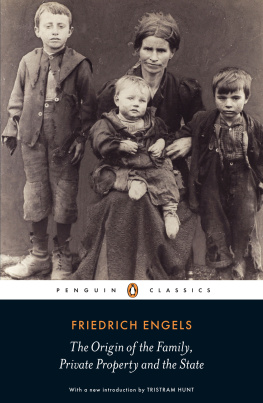
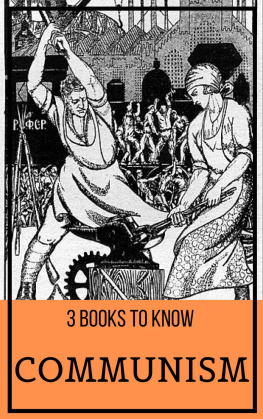
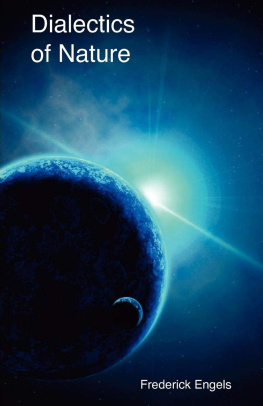

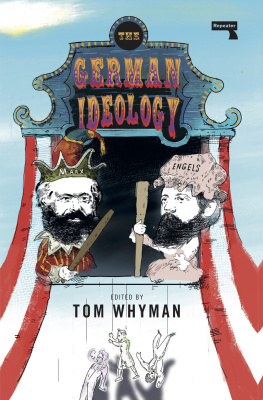

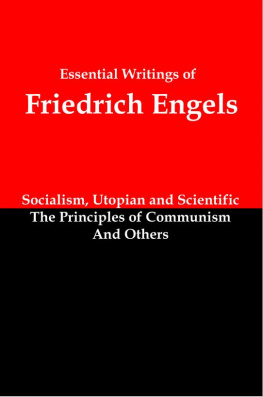
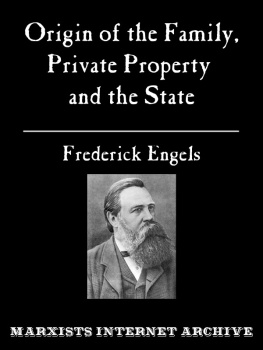
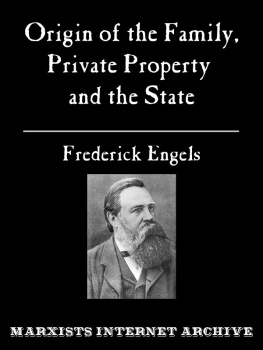
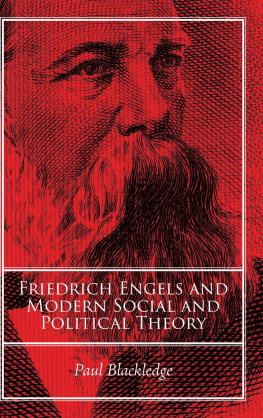

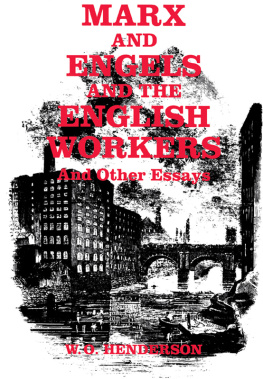

 CLASSICS
CLASSICS